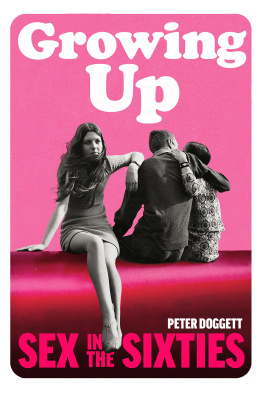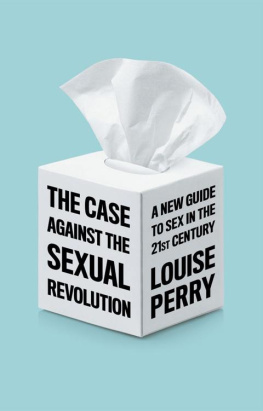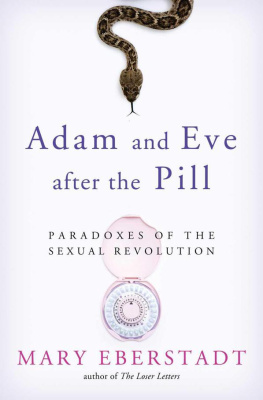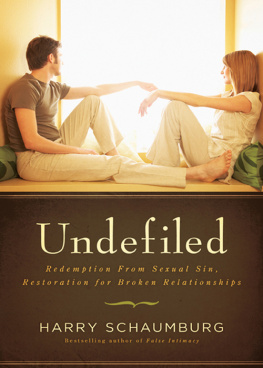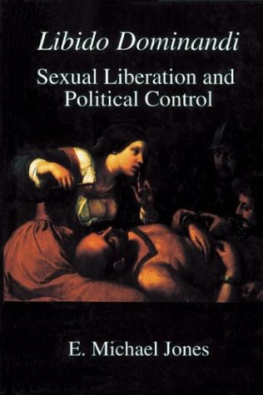Insights on Louise Perry's The Case Against the Sexual Revolution
Insights from Chapter 1
#1
The life of Monroe, the original playgirl, followed a similar trajectory to that of her pin-up predecessor Bettie Page, who survived into old age but spent her final decades in a psychiatric institution. The most successful modern porn stars are also likely to have been sexually abused as children, to have been in foster care, and to have been victims of domestic violence.
#2
The sexual revolution was the liberation of womens sexuality, but it was also the liberation of the playboy, who needed contraception and abortion in order to free his own libido.
#3
The sexual revolution of the 1960s stuck, and its ideology is now the ideological sea we swim in. It was able to persist because of the arrival, for the first time in the history of the world, of reliable contraception.
#4
I used to believe the liberal narrative, but after working at a rape crisis center, I realized that liberal feminism doesnt take into account other forms of social stratification, particularly economic class.
#5
Post-liberals are critical of social liberalism, which seeks to free individuals from external constraints placed on them by location, family, religion, and tradition. They are also critical of the free market ideology that seeks to free individuals from all constraints in order to maximize their ability to work and consume.
#6
I will seek to answer some questions about freedom that liberal feminism cant or wont answer. We must ask instead how we can best promote the wellbeing of both men and women, given that they have different sets of interests.
#7
The sexual revolution has led to a culture that promotes the interests of the Hugh Hefners of the world at the expense of the Marilyn Monroes. This culture commodifies sex, and women are disproportionately affected by this commodification.
#8
Sexual disenchantment is the feeling that sex is not as important or significant as we think it is. It can be caused by an ideology of sexual disenchantment, which is the idea that sex is not as important or significant as we think it is.
#9
Many liberal feminists believe that the only way to solve the problem of sexual violence is to teach men not to rape, while others believe that women should be able to do anything they want, and that if anything bad comes from following this principle, its the fault of society.
#10
In liberal feminist circles, it is taboo to discuss the influence of online porn on young women, or the fact that it has normalized aggression, coercion, and pain. Thus, young women are left to learn for themselves that freedom has costs.
#11
The authors advice applies primarily to heterosexual women, as the effect of the sexual revolution on relations between the sexes is the subject of this book. While some of it may seem like common sense to older readers, it is shocking enough to make a persons jaw drop when speaking with young people.
#12
The liberal media constantly demonizes the past to justify the present. They say that the key elements of savage culture were jealousy, competition, greed, and strife, and that we have successfully rid ourselves of these flaws.
#13
I reject the poisonous dichotomy that insists that the past must be either all good or all bad. I dont think we should imitate any sexual culture of the past, but I dont think that what we have seen over the last sixty years has been a process of relentless improvement.
#14
Hugh Hefner, the founder of Playboy, died on September 28, 2017. He was buried next to Marilyn Monroe, who was not his wife, but his girlfriend. Hefner built an entire empire without Marilyns consent.
#15
The author recommends that women should trust men, and not be afraid of them. She states that women should invite men into their lives, and not be afraid of them.
Insights from Chapter 2
#1
The 1975 book Against Our Will by Susan Brownmiller is the foundational feminist text on the subject of rape. It argues that rape is a product of patriarchy, a social system which privileges male interests over female ones. To end rape, we must first end patriarchy.
#2
The argument that rape is about power, not sex, is still popular among mainstream feminists today. But it is also popular among neo-Darwinian theorists who believe that rape is a cost-effective strategy for males to spread their genes widely with a minimal amount of parental investment.
#3
The theory of socialisation states that there are no innate psychological differences between men and women, and that any differences we observe are the result of nurture, not nature. However, the evidence presented by the authors of A Natural History of Rape suggests that hierarchy, and viciousness, and violence are in fact baked in.
#4
The socialisation theory of human evil is that we do bad things not because we are as fallible as any other animal, but because we have chosen to invent cultures that corrupt innocent little babies. But this view gives ultimate authority to society in molding the human character, for good and ill.
#5
Sex differences are still present in sports that favor endurance rather than strength alone. In Olympic swimming and track events, womens performances hover around 90 percent of mens, a figure sometimes referred to as the golden ratio of athletics.
#6
The liberal feminist project of challenging any restrictions on human freedom cannot accept the fact that there are immovable differences between the sexes in terms of strength and speed. And the consequences of this disadvantage go well beyond sports, particularly when male upper body strength is set beside the fragility of the female throat and skull.
#7
Radical feminists are willing to accept the fact of innate physical differences between the sexes, but they refuse to acknowledge that there are also innate differences above the neck. They believe that these physical differences have a effect on how people behave.
#8
We are a sexually dimorphic species, but not as dimorphic as some others. We are unique among primates in our intelligence, and we have been able to spread ourselves across the globe and adjust to a wide variety of environments.
#9
The idea of there being evolved psychological differences between the sexes has become so taboo in some circles that even voicing the possibility is taken as an indication of anti-feminist sentiment.
#10
The Natural History of Rape is a good example of how the misuse of a scientific discipline can lead to its rejection. The evidence itself is morally neutral, and can be put to all sorts of political purposes.
#11
The central feminist question should not be How can we all be free. but rather How can we best promote the wellbeing of both men and women, given that these two groups have different sets of interests that are sometimes in tension.
#12
A Natural History of Rape is a book that applies evolutionary theory to the task of understanding the causes of rape and the best methods of preventing it. It starts from the recognition that reproduction places more physical demands on women than it does on men.
#13
Not all men have the desire to rape, and most men are not potential rapists. It is difficult to spot potential rapists, however, as they usually display high levels of hostility, impulsiveness, and promiscuity.
#14
There are two ways to reduce rape: constraining would-be rapists by imprisoning them, and limiting their opportunities to act on their desires. Prosecution rates for sexual crimes are low everywhere, and this is partly due to low reporting rates and the fact that it is difficult to prosecute rape committed by anyone other than a stranger against anyone other than a child.


